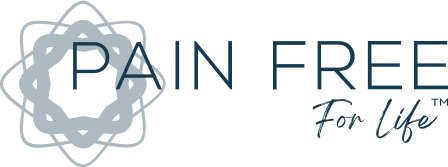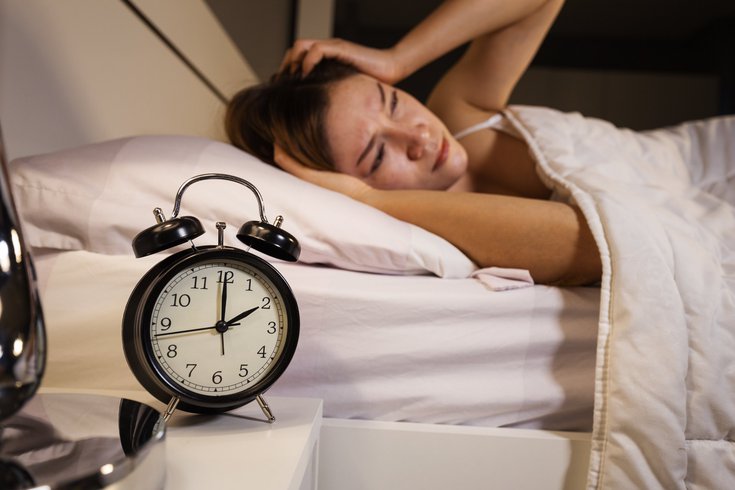
Sleep deprivation leads to poor immune function, an increase in the inflammatory response, and mental health issues—eventually digging you into a hole that is near impossible to climb out of. That’s precisely why we’ve made sleep one of the five pillars of The Hache Protocol for Pain Resolution™, our program for naturally resolving chronic pain, inflammation, and autoimmune symptoms.
Achieving restorative healing sleep often isn’t as easy as popping a pill. It takes an entire lifestyle approach which we understand can be intimidating when you’re living in chronic pain.
The excellent news is we are sharing some natural sleep aids that have helped countless patients of ours and busting five common sleep myths that may be getting in the way of revitalizing your sleep routine.
5 Common Sleep Myths Busted
There’s a lot of false information out there about sleep. Sheep, milk, melatonin, wine, we’ve all heard our friends and family tout their “miracle cure” for getting good rest, but unfortunately, many of these sleep strategies are simply a myth.
Let’s debunk some of the most common misconceptions about achieving the quality sleep your body needs to heal from chronic pain, inflammation, and autoimmune symptoms:
- You can catch up on sleep over the weekend—Many of us wrongly assume that we can catch up on the sleep we missed during the busy work week once the weekend rolls around. But that’s just not true. At Pain Free For Life, we like to always think of sleep like a line of credit. Each time you subtract from it, you will need to pay that same amount back or endure interest penalties. And when it comes to repaying sleep debt, it almost always looks like a hit to your health. That’s not to say you shouldn’t get some extra rest over the weekend if you feel you need it, but ultimately the best strategy is to prioritize getting the essential 7-9 hours per night.
- Alcohol can help you wind down and fall asleep faster—Because alcohol is a central nervous system depressant, many of us will feel relaxed and calm after imbibing, and it can be tempting to kick back a few when sleep eludes us. But don’t make this mistake, as consuming alcohol before bedtime can cause increased insomnia, poor sleep quality, and grogginess the next day. And that’s not where the problems end. A 2018 study found a 25% increase in sleep apnea in those who consumed alcohol before bed. Another study in 2018 found that as little as two servings of alcohol per day for men (or one serving for women) decreased sleep quality by a staggering 9.3%.
- Count sheep for better sleep—We’ve all heard about counting sheep to fall asleep faster. But distracting yourself with mental imagery of sheep jumping over a fence is more a hindrance than a help when rest doesn’t come easy, according to an Oxford University study.
- Drink milk before bed—The image of a man in a nightcap drinking a glass of milk before bed is ubiquitous in pop culture, cartoons, and movies. But there is no settled science to support the idea that drinking dairy before bed helps you sleep better. If you have a dairy intolerance, it could make getting the rest you need much more complicated as you toss and turn with stomach cramps, bloating, and unplanned bathroom trips throughout the night.
- Melatonin is a miracle cure for sleep—As we’ve previously stated, melatonin is accepted by most doctors as an appropriate short-term approach to achieving better sleep. But exercise caution when using melatonin supplements as they can disturb your body’s natural sleep cycle, making you reliant on it.
- For more information on the long-term side effects of melatonin supplements, read our blog, 3 Unexpected Reasons Why You Can’t Sleep.
The great news is, we’ve pinpointed several practical and approachable natural sleep aids that really work, and we are going to share them with you now.
Our 3 Favorite Natural Sleep Aids (Hache Protocol™ Approved)
We love recommending these natural sleep aids because they work in harmony with The Hache Protocol™ to provide a non-addictive and accessible route to restorative sleep— every night.
- A soothing cup of sleep tea—The ritual of brewing a fragrant and comforting cup of tea before bed is enough to help your mind slow down and prepare for sleep, but did you know that some fantastic natural herbs can help you achieve restorative rest each night? Valerian, lavender, chamomile, cardamom, peppermint, lemon balm, catnip, cinnamon, and banana peel are all excellent ingredients for a homemade natural sleep tea blend.
- If you’d prefer not to prepare your own tea blend, we suggest our Sana Therapeutics Tea: Sleep Blend. This natural tea is a pleasure to drink and will calm your nervous system so you can settle in for a healing night’s rest.
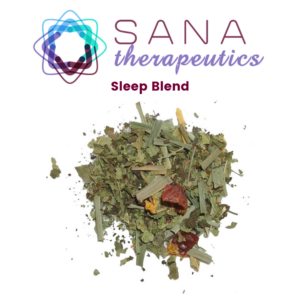
- To learn more about why some plants and herbs help you sleep better and get three of our favorite herbal sleep tea recipes, please read our blog, Can’t Sleep? Try Our Top 3 Holiday Sleep Tea Recipes.
- A good book—Remember how relaxing it was to have someone read you bedtime stories as a child? There’s some science to support the idea that reading can decrease stress levels and improve sleep. Researchers from the University of Sussex found that reading before bed reduced stress levels by a surprising 68% in participants, which helped them achieve better quality rest. Another study by The Sleep Council found that 39% of people who regularly read before they slept “sleep very well.”
- Microcurrent therapy— As one of the five pillars of The Hache Protocol™, the power of microcurrent therapy can not be underestimated when it comes to supporting a healthy sleep cycle and routine. We often like to say that microcurrent therapy is the “secret sauce” that ties the other four elements (sleep, fitness, nutrition, and stress reduction) together.
We’ve identified two microcurrent protocols (Vagus nerve stimulation and Conductive Ear Clips) that are particularly effective in alleviating insomnia and helping our patients get the rest they need to thrive.
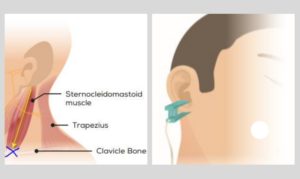
- To access free step-by-step instructions for these sleep-inducing protocols, please read our blog, 3 Surprising Effects of Sleep Deprivation and 4 Natural Fixes.
- To learn more about what microcurrent therapy is and why it’s so effective in addressing problems like chronic pain, autoimmune symptoms, and insomnia, download our FREE report “What is Microcurrent” today.
We’re Here to Help You Get Back on Track
Remember, your body requires sufficient sleep to revitalize and heal itself and to perform crucial reorganization activities in the brain. Regrettably, sleep deprivation has become an epidemic, and the conventional solution of employing potentially addictive pills isn’t doing anyone any favors.
Rather than encouraging our patients to continue relying on drugs to get to sleep, we will continue to help you find natural sleep aids that assist you in feeling deeply rested and rejuvenated each and every morning— naturally.
